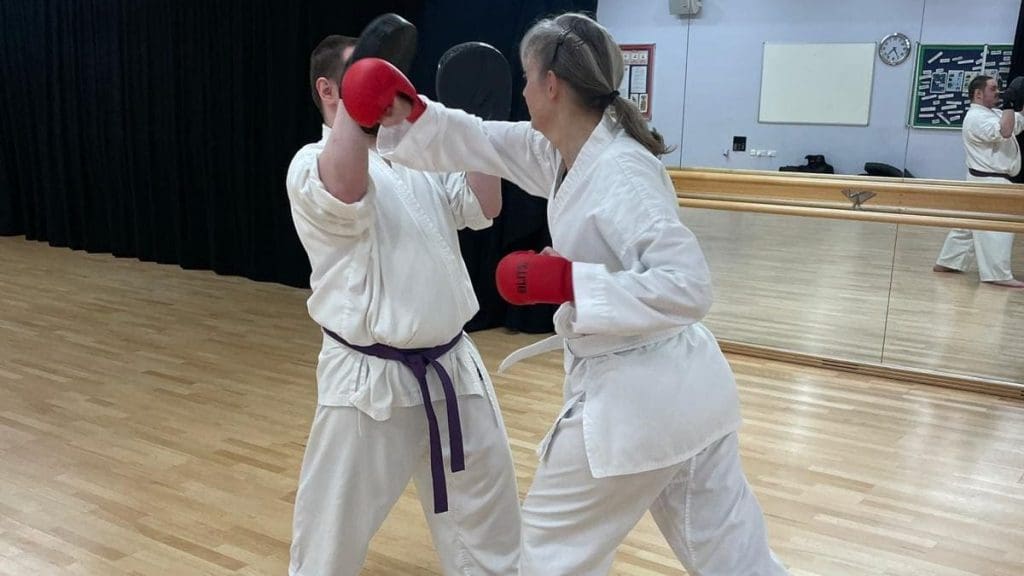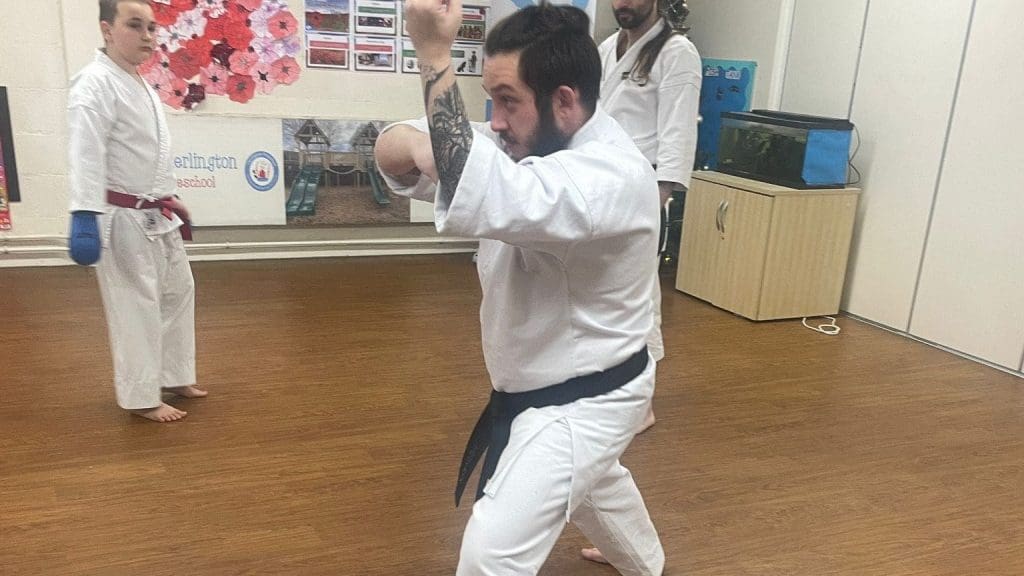Practical Self Defence
In this article we discuss self defence training, and what makes it practical
The topic of self defence is hotly debated by martial artists and combat sport competitors worldwide. In this article I’m aiming to give my perspective on this highly controversial topic, debunk some myths, and talk about what I think practical self defence is and should be.
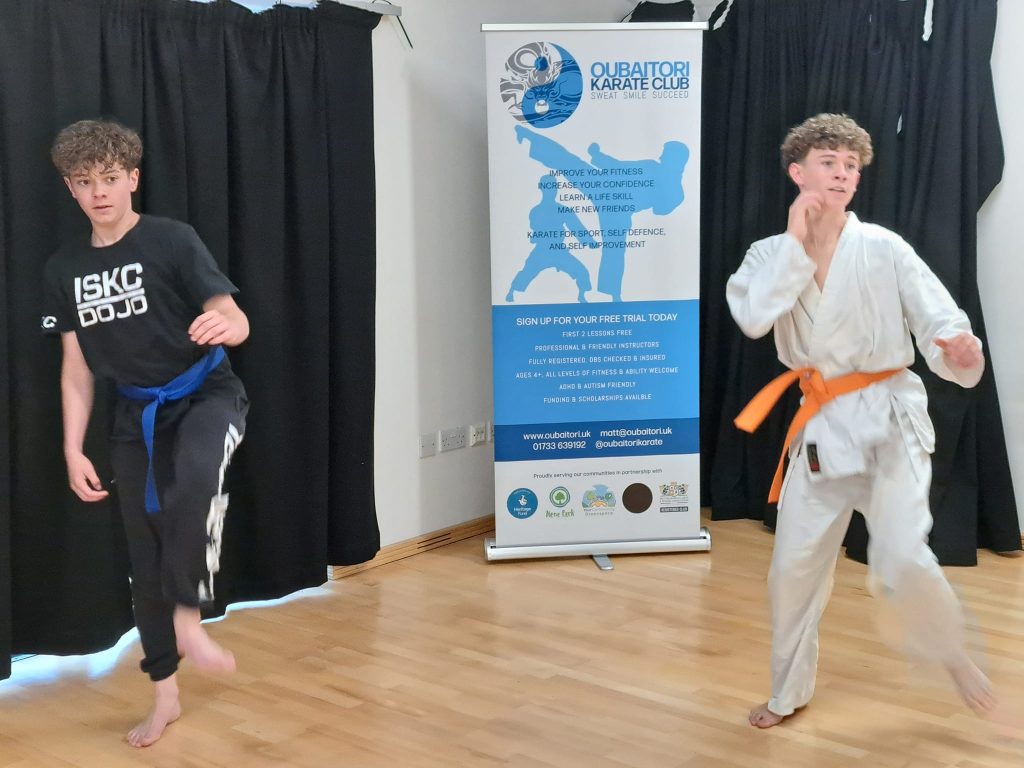
myth #01
Size Doesn’t Matter
Technique and technical competency is certainly a factor in self defence, I am not for a second arguing that it isn’t.
In practice really you’re only ever trying to “tip the scales”, fitness might outweigh a larger opponent, technical capability might allow you to defeat a stronger opponent. But if everything else is equal, the larger opponent will win.
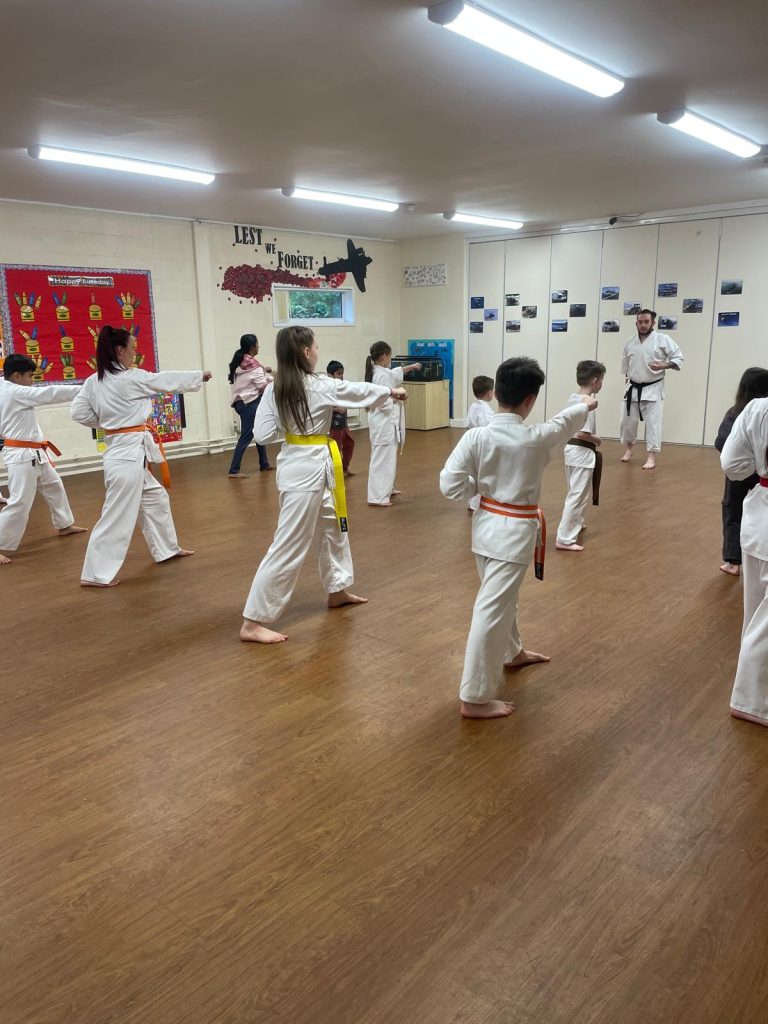
Myth #02
It’s all in the technique
This is a lie, often perpetuated as a way of avoiding hard training, and paired with “advanced” or mystical/magical techniques and concepts. Particularly when paired with myth 1 above.
In practice, you can only fight how you train. You can train the best techniques in the world, without personally pressure testing it they are unlikely to be there for you when you need them to be.
This brings me to my next point, every technique has a counter, and has a way it can go wrong. You need to work your “game” to be able to deal with this.
One trap that advanced martial artists can fall into is over complicating techniques. Imagine the reality of the situation. Fine motor skills are not all that much use to you. There are practical considerations (kerbs, space, hazards like stairs or glass on the ground) that are often not contemplated in a clinical and compliant scenario.
There isn’t usually much time to work with, and things happen very very quickly. Whatever you do has to be dynamic and fast.
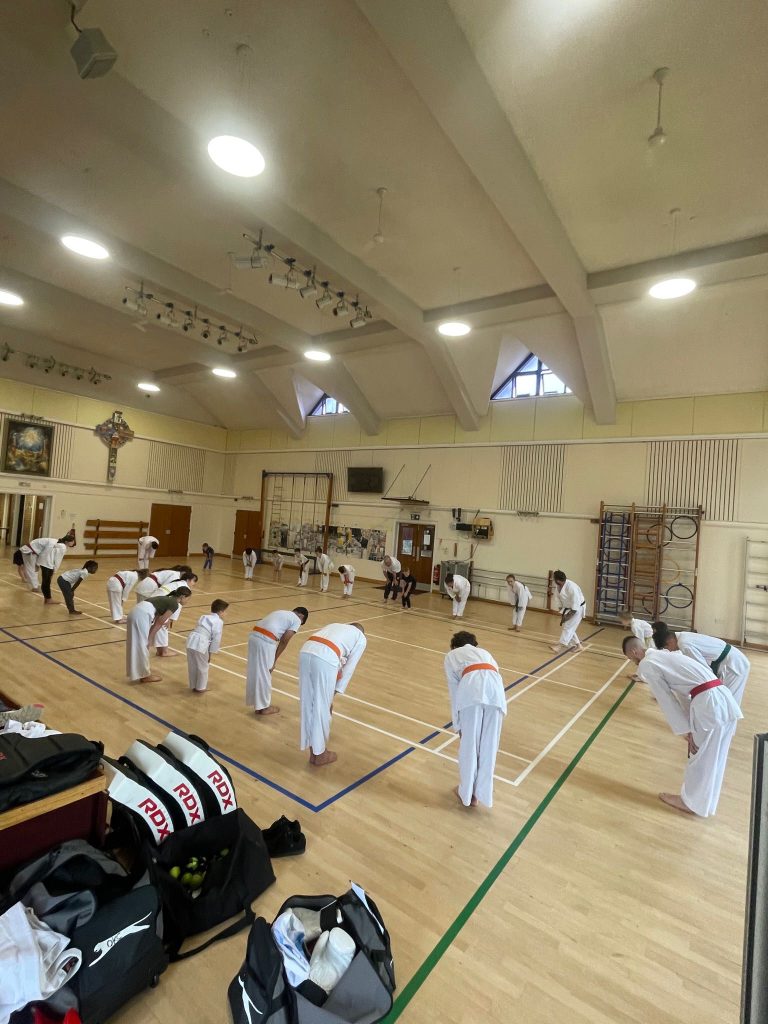
Myth #03
Martial Arts is Self Defence
This is more of a misconception than a lie. Martial Arts are not inherently good for self defence. Going to training and practicing forms or Kata for several years (without anything else) is unlikely to improve your self defence capabilities.
If you want your martial arts to support your self defence capabilities, you have to train them to do so.
The other myth is that someone who is high ranking in martial arts must automatically be good at self defence. This simply isn’t true, and it’s also not mutually exclusive.
Someone who is worked first hand in a security industry (Police, Military, Bouncer, etc) is far more likely to have practical capabilities, and likely exceed those of a martial arts coach, when it comes to real world self defence.
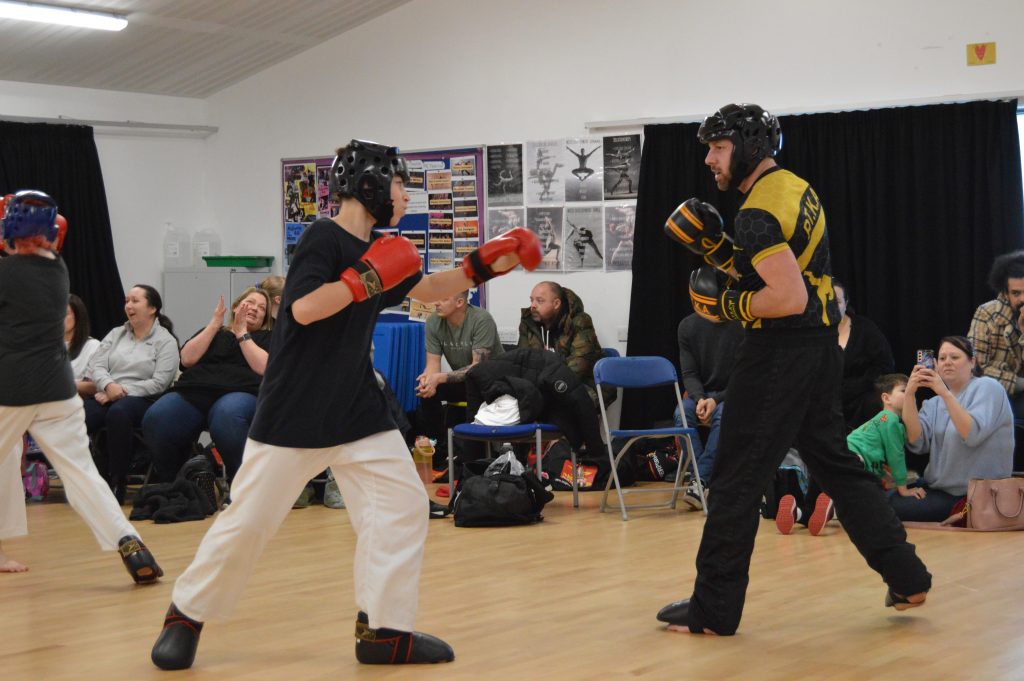
Myth #04
Combat Sports are bad for self defence
Sometimes pedalled by hardcore traditionalists, combat sports are not bad for self defence. Would you say that to a professional cage fighter, or even a semi-professional kickboxer?
When Martial Arts turn to Combat Sports (e.g. Karateka competing in Kickboxing, or students of BJJ participating in MMA, etc) the competitor becomes more attuned to the pressure and emotional management, their technique becomes more effective, and so on.
Participating in combat sports improves your self defence capabilities.
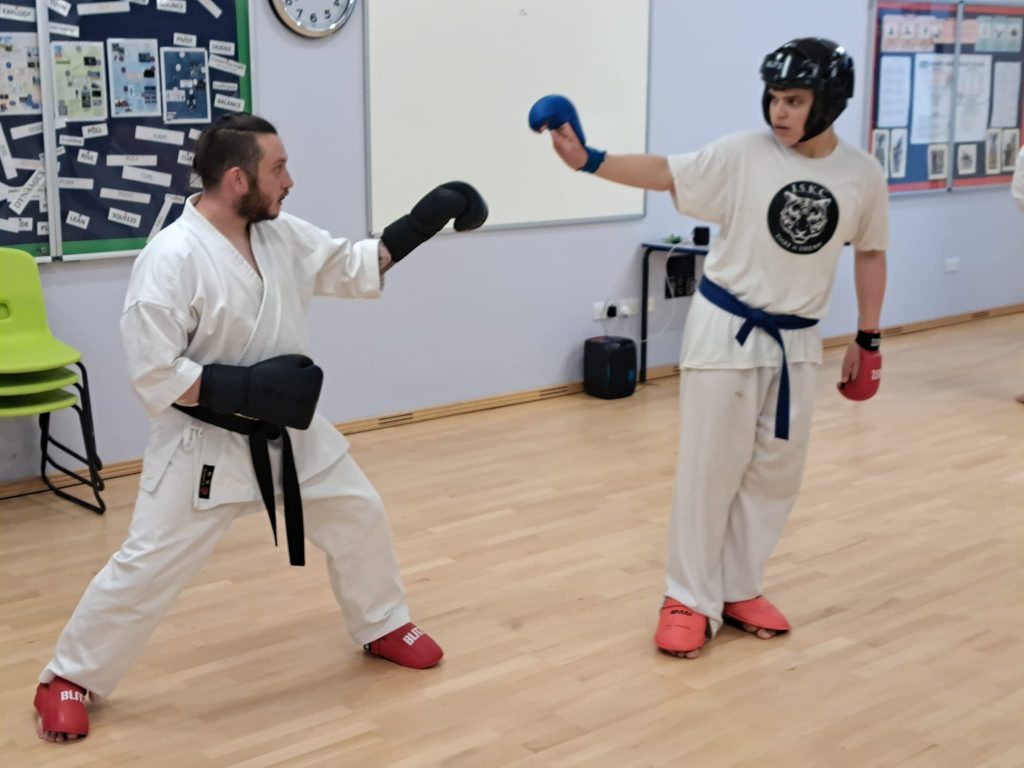
Myth #05
There are correct and incorrect techniques
This is simply wrong. In Martial Arts and Combat Sports, sure there are techniques which are good and bad.
The fundamental differences between a competitive match and a self defence situation are that there’s no “green means go” moment, when an arbitrator (referee) has begun proceedings. There’s also no ruleset to follow.
Yes, that means they can kick your groin. But you’re a more effective kicker, and you can do the same.
Truthfully when it comes to self defence, if it hurts it works. The aim of the game is not to win but to get home safely, and remain free of criminal prosecution.
So, that’s some myths debunked. So how do I learn self defence?
I’m glad you asked! Let’s take a look at it…
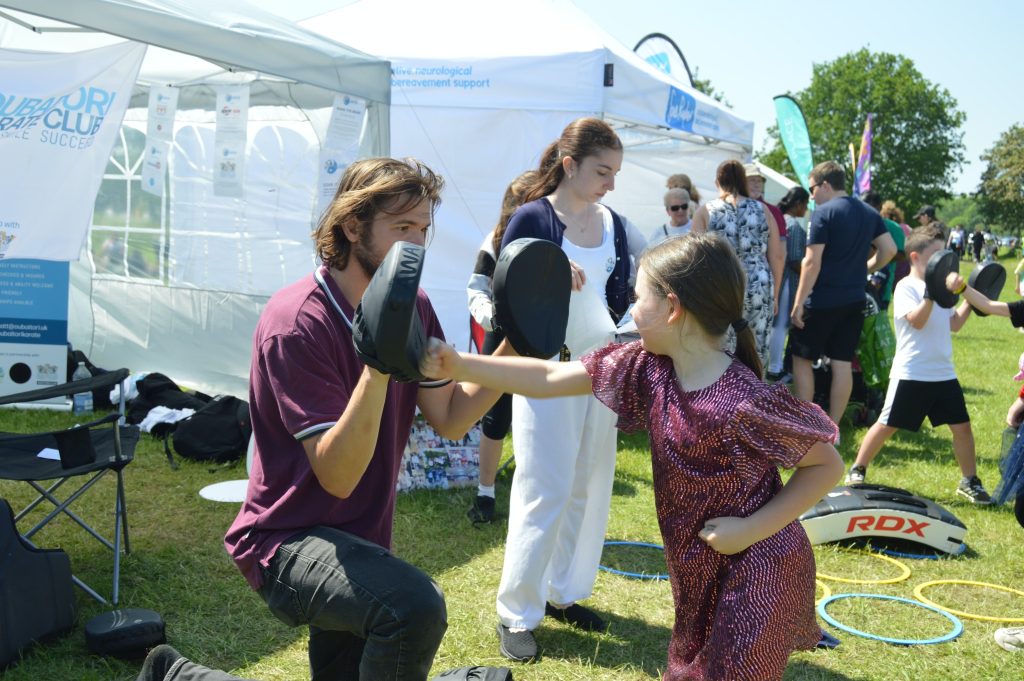
POINT 01
Understand the scale
I hate to say this, you can get a very beginners understanding of self defence in a short term self defence course. It’s not going to do much to balance the scale.
If you’re a smaller built person (like I am) understand what will work against larger attackers.
Understand that self defence relies on core capabilities (such as controlling an arm, or delivering a strike), and they will take time to refine. There are no magic tricks and shortcuts.
Don’t practice until you get it right. Practice until you can’t get it wrong.
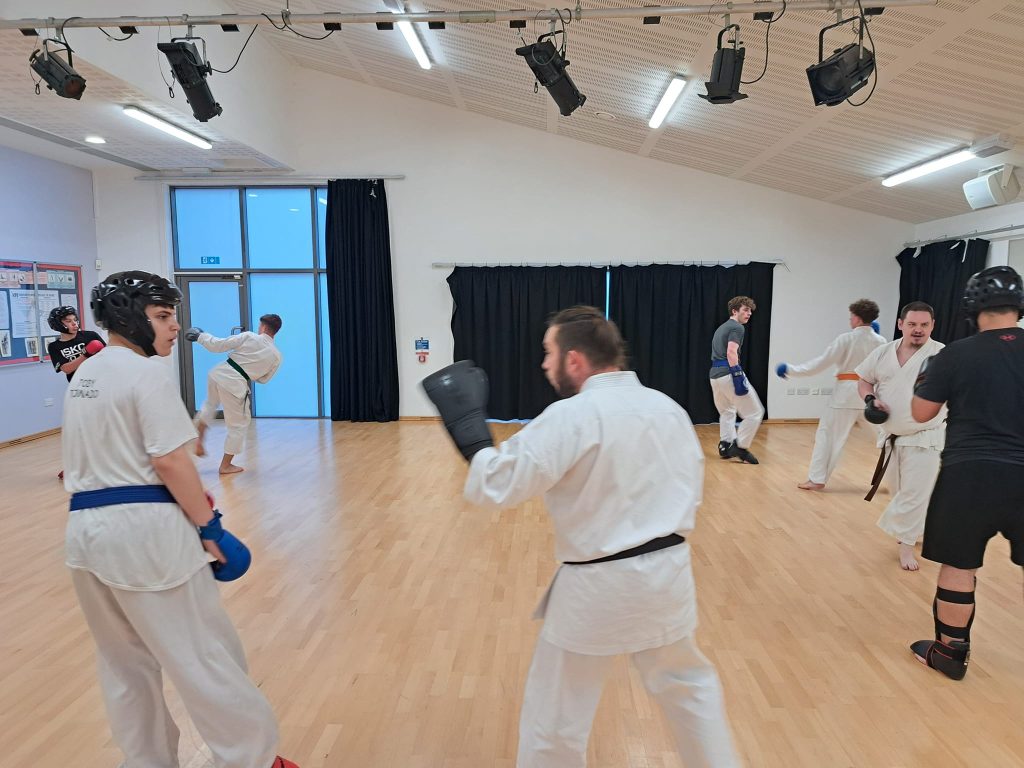
Point 02
Train for it, honestly
Honesty is the key point here. Not every technique works for everybody, for a whole host of reasons.
When you’re training, ask yourself if what you’re training would work, in real time, against someone who truly intends to do you harm. Would you bet your life (or more) on the technique and the way you’re training it?
Be honest with yourself about if this technique works.
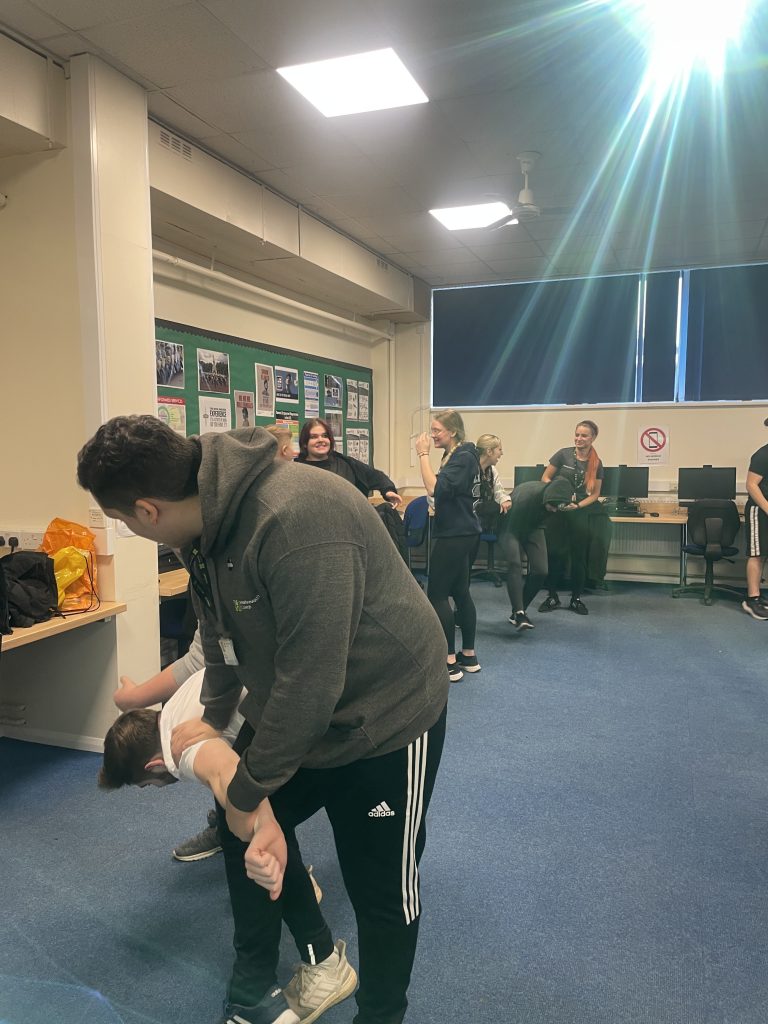
Point 03
Make it work for you
Alongside the help of your coach or coaches, modify the technique to work for you. With your strengths, avoiding your weaknesses.
If you figure something out that makes it 10x more effective for you, roll with it. Listen to your coaches, but they won’t be with you in the few seconds it takes for a self defence situation to unfold.
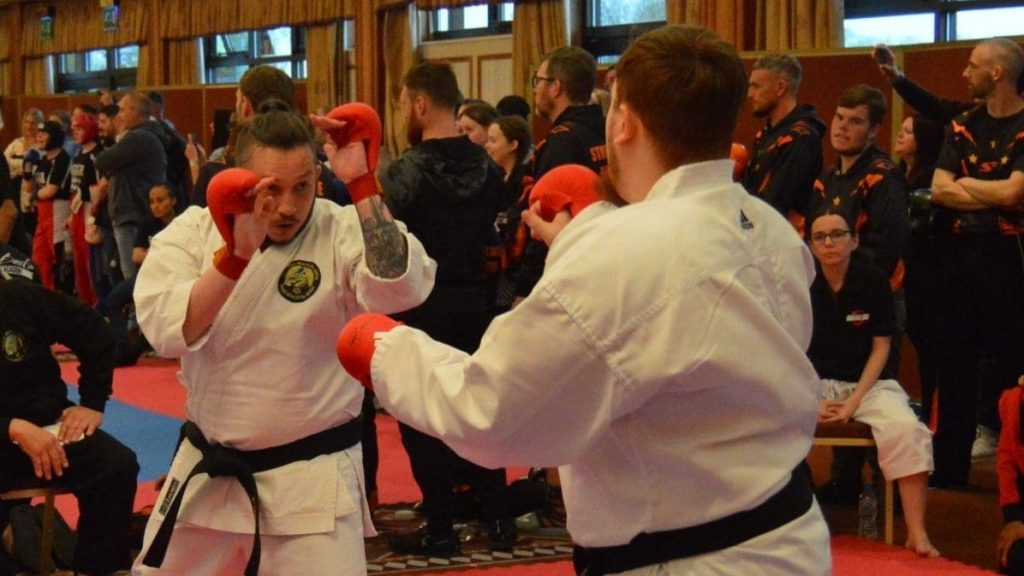
Point 04
Test, refine, try again
Keep going. At different intensities, with partners of different sizes. Learn to improve, go off script. Speed things up
Analyse, what went well, what didn’t go well. Figure it out, and keep working, keep refining.
Note: All of the above in a safe and supervised environment! With appropriate protective equipment and qualified instructors.
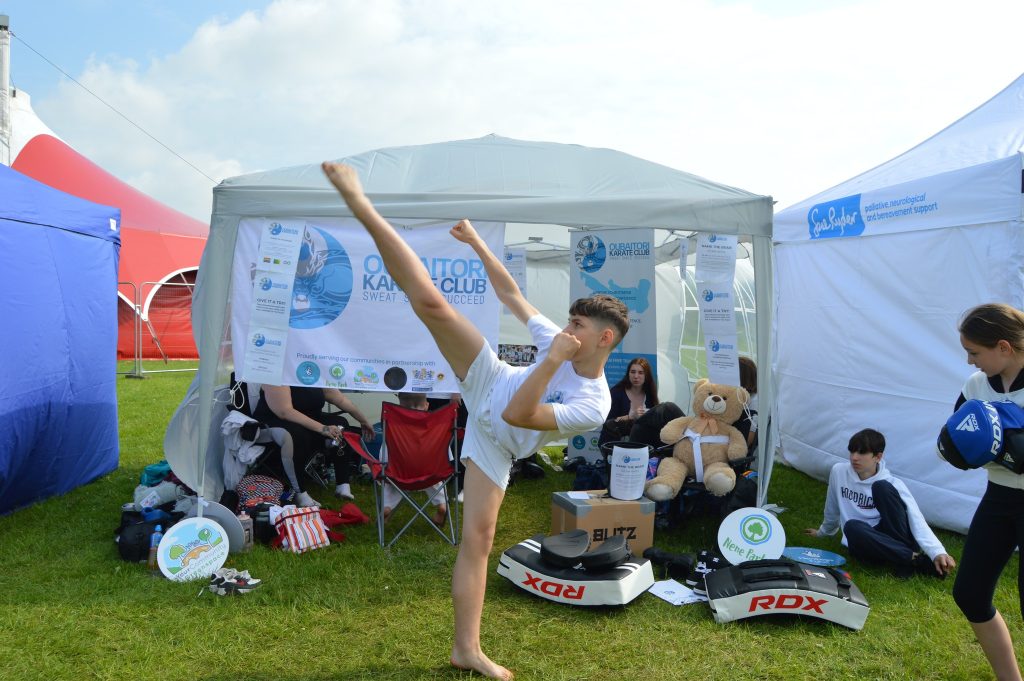
Point 05
Train it some more
We talk about “Wabi Sabi” – which means nothing is ever finished. Nothing is ever perfect, and nothing is forever. Keep practicing. When you think you’re done; practice some more.
Keep your skills sharp. They can, will, and do deteriorate over time.
Every day we sweep the floor. Every day the floor gets dirty. Every day we must sweep the floor again.

Point 06
Self defence happens before the confrontation
Listen to your gut. Better than being able to defend yourself it not having to. A good general can win the war, a great general is able to avoid the war.
If something feels off, leave. If you have a bad feeling about a situation, a location, an event, leave.
Good self defence is understanding danger and how to avoid it. Actually defending yourself is always a last resort.
In closing
To Summarise
Martial Arts and Self Defence are not synonymous. Self defence isn’t about learning some techniques. It’s about understanding environments and situations, and then having tried and tested methods to deal with scenarios that unfold, often in fairly unpredictable ways.
The ability to defend oneself doesn’t come from doing a quick course of a couple of hours over a few weeks. It’s always about tipping the scales in your favour, contemplating all the factors in the confrontation (size, state, environment, capabilities). The best way to learn to defend yourself, is to learn a martial art or combat sport and hone those skills. The higher your skills and fitness, the more likely they are to tip the scales in your favour.

